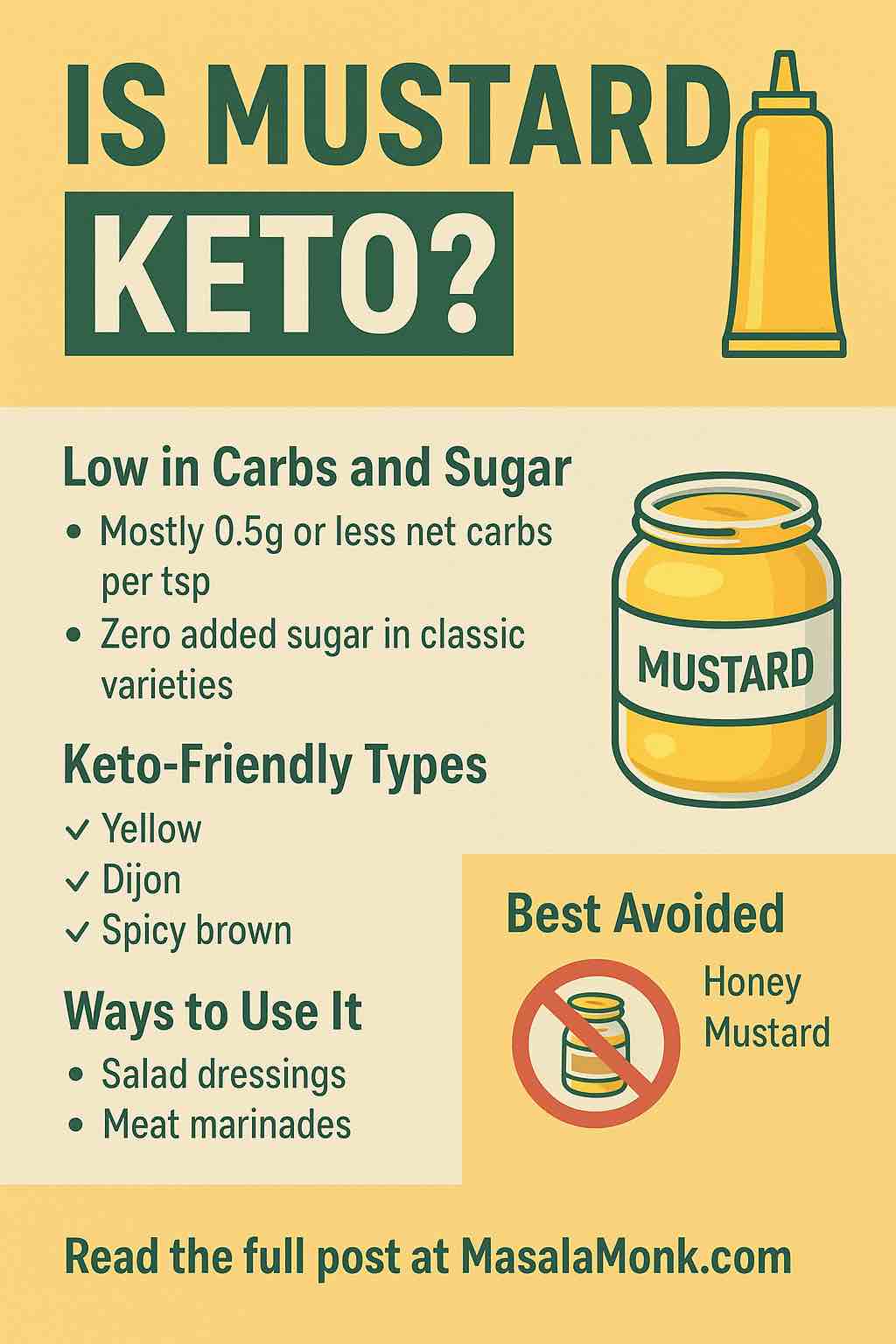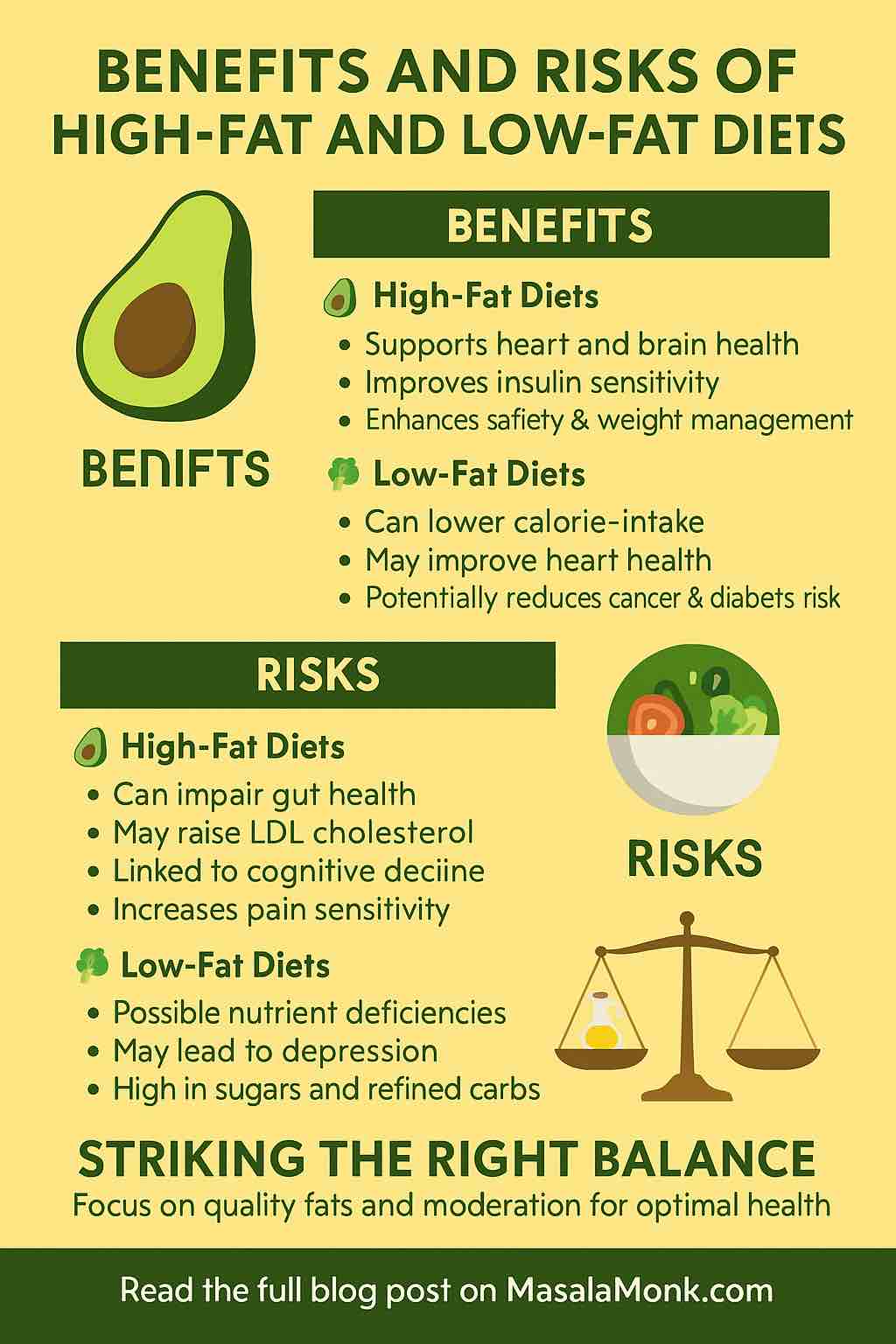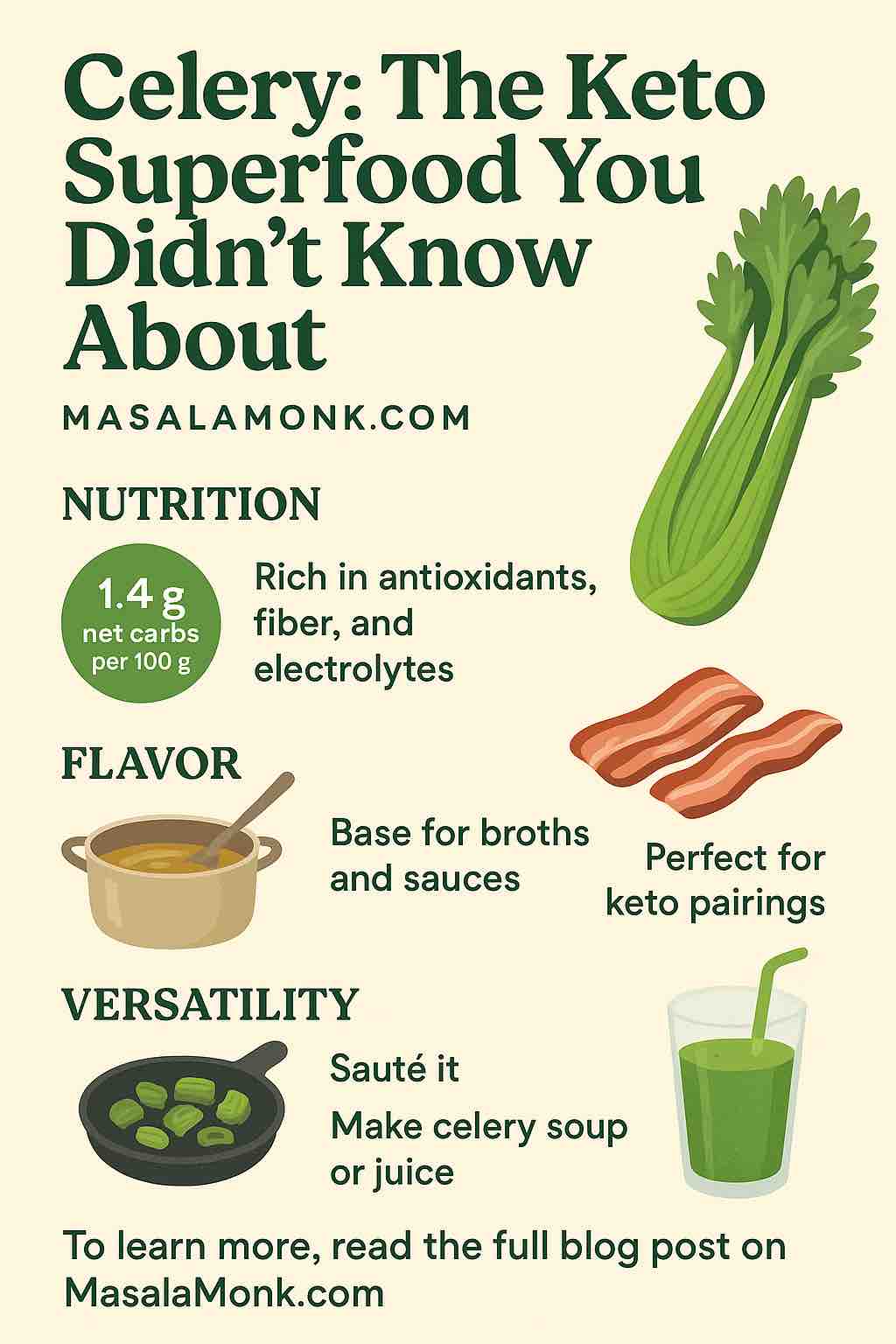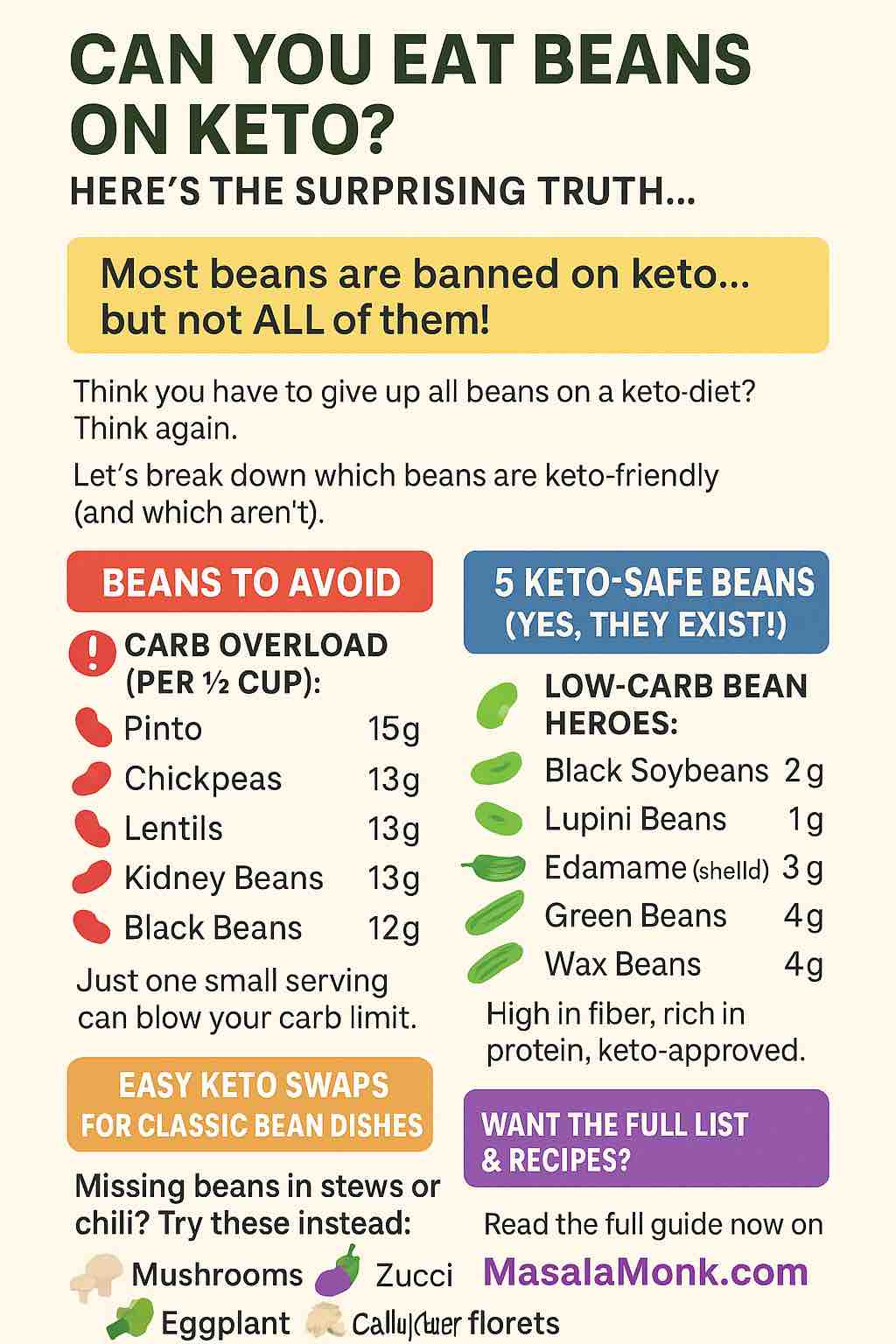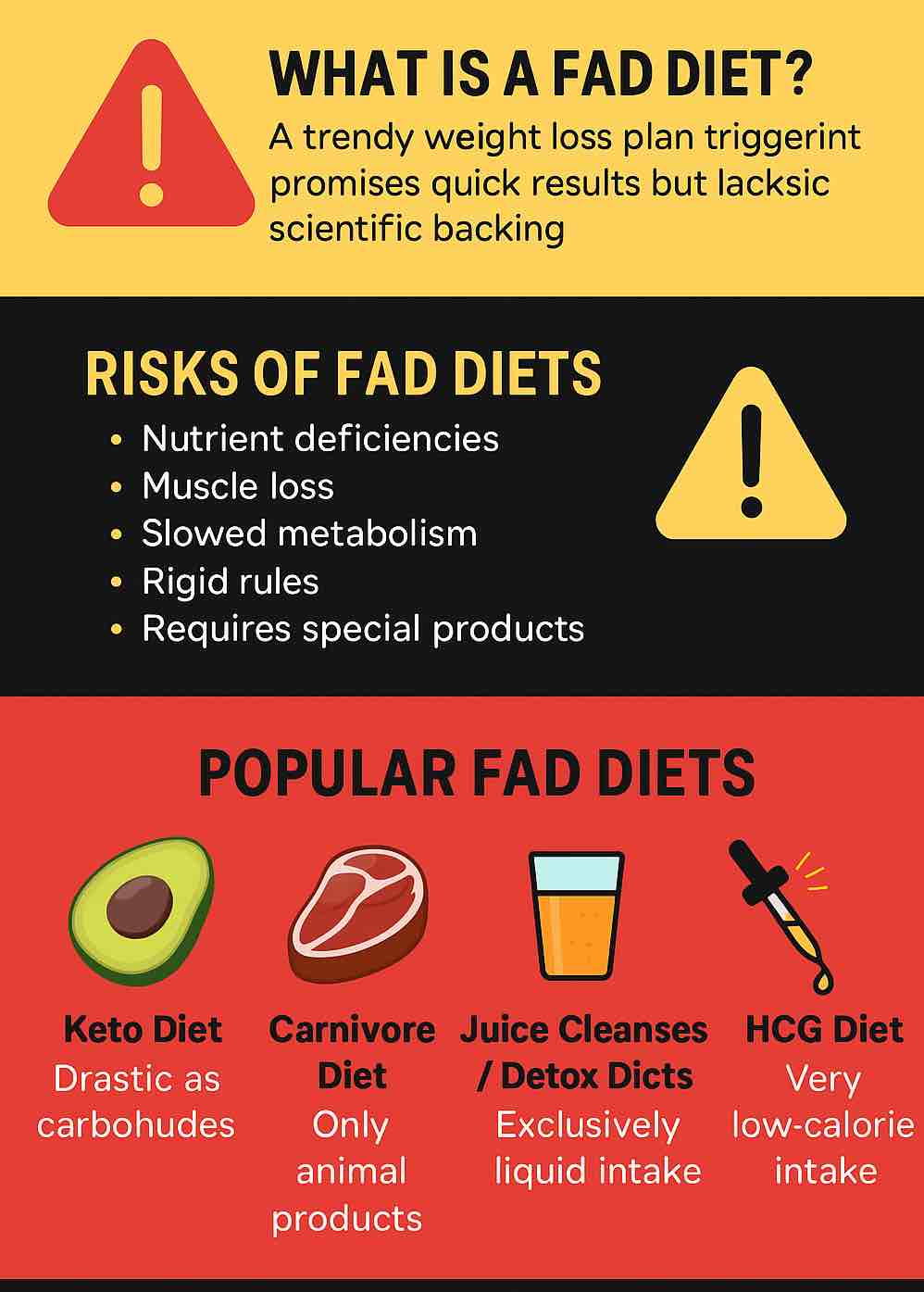
In today’s fast-paced world, where everyone wants results yesterday, fad diets have become a tempting shortcut to weight loss and better health. They flood your feed with promises of glowing skin, fat loss, and detoxed organs—usually endorsed by celebrities or influencers.
But are these diets the solution to your health goals or just smoke and mirrors?
Let’s take a deep, no-nonsense look at what fad diets really are, how to spot them, and the truth behind five of the most popular ones today.
🔍 What Is a Fad Diet?
A fad diet is a trendy eating plan that promises dramatic results—especially weight loss—with little effort or time. These diets often go viral, thanks to slick marketing, celebrity endorsements, or sensational claims like “Lose 10 pounds in a week!”
But here’s the truth: most fad diets are nutritionally unbalanced, unsupported by science, and unsustainable in the long term.
Common Red Flags:
- Quick-fix claims: “Drop 15 lbs in 10 days!”
- Eliminates entire food groups: “No carbs, ever.”
- No scientific backing: Relies on anecdotes or testimonials.
- Rigid rules: No flexibility, no personalization.
- Requires expensive products: Supplements, shakes, hormone drops.
If it sounds too good to be true—it probably is.
💣 The Real Risks Behind Fad Diets
Before jumping into the latest viral trend, consider the downsides:
- Nutrient Deficiencies: Many fad diets cut out essential vitamins and minerals.
- Muscle Loss: Rapid weight loss often means you’re losing muscle, not fat.
- Slowed Metabolism: Severe calorie restriction can crash your metabolism.
- Mental Stress: Strict rules may trigger anxiety or disordered eating patterns.
- Yo-Yo Effect: Weight lost quickly often comes back—plus more.
🔍 5 Fad Diets — What They Claim vs. What Science Says
1. Keto Diet: The Carb Killer
What it promises: By slashing carbs, your body enters ketosis and burns fat fast.
Reality check:
- Pros: Initial weight loss, may help with insulin sensitivity.
- Cons: Constipation, nutrient gaps, hard to maintain, possible cholesterol issues.
- Bottom line: May work short term, but not a magic bullet. Most people quit within a year.
2. Carnivore Diet: All Meat, All the Time
What it promises: Ditch carbs and plants—eat only meat for improved health.
Reality check:
- Pros: Cuts out processed foods, may reduce inflammation temporarily.
- Cons: Zero fiber, no antioxidants, gut issues, long-term unknowns.
- Bottom line: Extremely restrictive and unsupported by large-scale studies.
3. Juice Cleanses & Detox Diets
What they promise: Flush out toxins, reset your body, and lose weight fast.
Reality check:
- Pros: Increased veggie intake (briefly).
- Cons: Low protein, low calories, no actual “detox” happening—your liver and kidneys already handle that.
- Bottom line: Mostly hype, not health. Causes more harm than good over time.
4. HCG Diet: Starvation + Hormones
What it promises: Injecting HCG hormone and eating just 500–800 kcal/day melts fat.
Reality check:
- Pros: Rapid weight loss (unsurprising at 500 kcal/day).
- Cons: Dangerous. FDA warns against it. Hormonal imbalance, gallstones, nutrient deficits.
- Bottom line: Unsafe, ineffective, and possibly illegal in many places.
5. Alkaline Diet: Change Your pH, Cure All Ills
What it promises: Alkaline foods raise your body pH and prevent disease.
Reality check:
- Pros: Promotes plant-based eating.
- Cons: Your body regulates pH tightly—your diet can’t change your blood’s pH.
- Bottom line: Built on faulty science, but promotes healthy habits if not taken to extremes.
🧭 So What Actually Works?
If you’re tired of the quick-fix cycle, here’s the good news: science has consistently shown that sustainable lifestyle changes are the key to long-term health and weight control.
🔑 Evidence-Based Guidelines:
- Eat Whole Foods: Focus on minimally processed fruits, vegetables, grains, legumes, lean proteins, and healthy fats.
- Moderation > Elimination: No need to cut out carbs or fats entirely.
- Personalized Plans: What works for your friend might not work for you. Tailor your diet to your lifestyle, culture, and preferences.
- Movement Matters: Combine nutrition with regular physical activity.
- Mindset Over Willpower: Build habits, not restrictions.
📣 Pro tip: Work with a registered dietitian or certified nutritionist to create a plan that’s science-backed and designed for you.
✅ Final Thoughts: Choose Sustainability Over Sensation
Fad diets will come and go—just like the weight they promise to shed.
While they may offer quick results, they almost always fall short when it comes to health, sustainability, and long-term success. The real secret? A balanced, personalized, and flexible approach that you can maintain for life.
Stop chasing trends. Start building habits. That’s the real transformation.
🔄 10 FAQs About Fad Diets
1. What is the main difference between a fad diet and a healthy diet?
Answer:
A fad diet is usually restrictive, short-term, and focused on rapid results without scientific support. A healthy diet is balanced, sustainable, and personalized, emphasizing long-term health and nutrient adequacy.
2. Are all low-carb diets considered fad diets?
Answer:
No. While some low-carb diets (like Keto or Carnivore) can be fad-like due to their rigidity and hype, others (like a moderate low-carb Mediterranean diet) can be balanced and evidence-based.
3. Can I lose weight without following a fad diet?
Answer:
Absolutely. Sustainable weight loss comes from consistent, small changes in eating and activity habits—without extreme rules or deprivation.
4. How do I know if a diet is a fad?
Answer:
Red flags include:
- Promises of rapid weight loss
- Elimination of entire food groups
- “Magic” foods or supplements
- Lack of scientific backing
- Over-reliance on testimonials or influencers
5. Do fad diets really help “detox” the body?
Answer:
No. Your liver, kidneys, and lymphatic system naturally detoxify your body. There’s no credible scientific evidence that specific foods or juices detoxify better or faster.
6. What are the dangers of following a fad diet long-term?
Answer:
Risks include:
- Nutrient deficiencies
- Muscle loss
- Fatigue
- Hormonal imbalances
- Poor relationship with food
- Risk of eating disorders
7. Why do fad diets make me regain weight after stopping?
Answer:
Because they’re not sustainable. Most involve severe restrictions, so once you resume normal eating, the weight returns—often with interest. This is known as yo-yo dieting.
8. Are celebrity-endorsed diets trustworthy?
Answer:
Not usually. Celebrities may not be nutrition experts, and many endorsements are paid. Always verify claims with peer-reviewed research or consult a registered dietitian.
9. What should I look for in a sustainable diet?
Answer:
Look for:
- Flexibility and variety
- Inclusion of all major food groups
- Personalization to your needs
- Long-term habit formation, not quick fixes
- Professional guidance if needed
10. How can I start eating healthier without falling into fad diet traps?
Answer:
Start small:
- Add more vegetables and fiber
- Reduce ultra-processed foods
- Stay hydrated
- Cook more at home
- Don’t eliminate—moderate
- Prioritize progress over perfection

